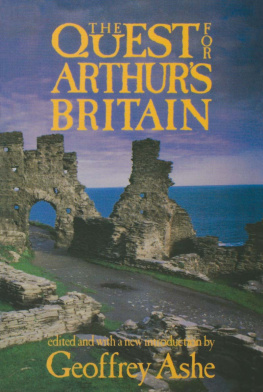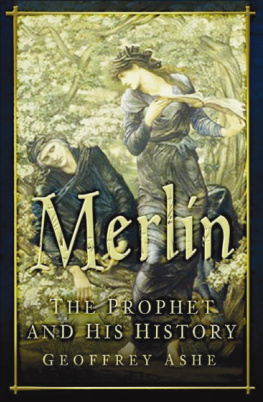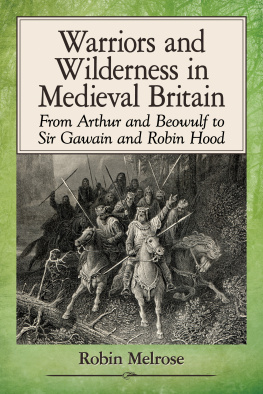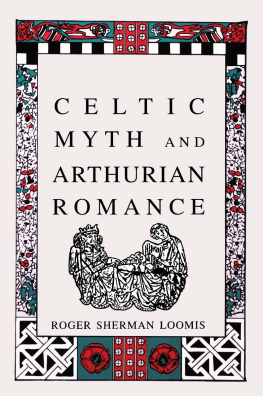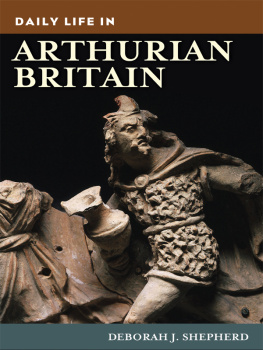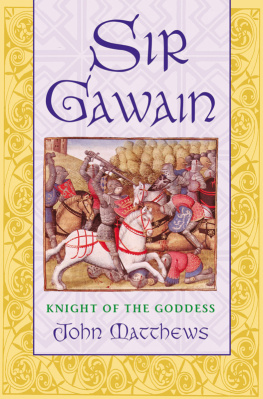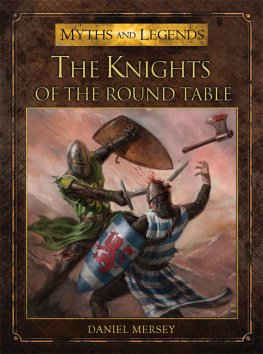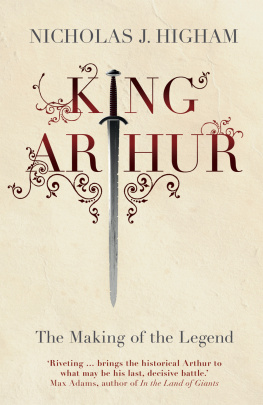Geoffrey Ashe, F.R.S.L., the editor, is a well-known writer on Arthurian themes and dark-age history, and was co-founder and Secretary of the Camelot Research Committee. His books include Kings and Queens of Early Britain, King Arthurs Avalon and From Caeser to Arthur. He has lectured widely in both Britain and the United States.
Leslie Alcock, F.S.A., F.R.S.E., is a Professor of Archaeology at the University of Glasgow. He was Director of Excavations at Dinas Powys Glamorgan, Degannwy Gwynedd and Cadbury Castle on behalf of the Camelot Research Committee. He is the author of Arthurs Britain and Cadbury/Camelot.
C. A. Ralegh Radford, D.Litt., F.B.A., F.S.A., F.R.Hist.S., was co-founder and Chairman of the Camelot Research Committee. A former President of the Royal Archaeological Institute and a leading figure in British archaeology, Dr Radford directed excavations at Tintagel, Castle Dore, Whithorn and Glastonbury Abbey.
Philip Rahtz, M.A., F.S.A., is a Professor of Archaeology, and heads the Archaeology Department at the University of York. He was a member of the Camelot Research Committee and was Director of Excavations at Glastonbury Tor.
Jill Racy lectures on the History of Costumes. She is an actress and theatrical costume and mask designer.
Published by
Academy Chicago Publishers
363 West Erie Street
Chicago, Illinois 60610
First Academy Chicago printing, 1987
Reprinted, 1994,2000
Printed and bound in the U.S.A.
All rights reserved.
No part of this book may be reproduced in any form
without the express written permission of the publisher.
Library of Congress Cataloging-in-Publication Data
Ashe, Geoffrey
The quest for Arthurs Britain.
Reprint. Originally published: New York: Praeger, 1968.
Bibliography: p.
Includes index.
1. Arthur, King. 2. Arthurian romancesHistory and criticism.
3. Great BritainHistoryAnglo-Saxon period, 449-1066.
4. Great BritainAntiquities.
I. Title.
DA152.5.A7A827 1987 942 87-19424
ISBN 0-89733-287-3 (pbk.)
CONTENTS
The Visionary Kingdom
Geoffrey Ashe
The Arthurian Fact
Geoffrey Ashe
Romance and Reality in Cornwall
C.A. Ralegh Radford
Wales in the Arthurian Age
Leslie Alcock
Glastonbury Abbey
C.A. Ralegh Radford
Glastonbury Tor
Philip Rahtz
Cadbury: is it Camelot?
Leslie Alcock and Geoffrey Ashe
Extending the Map
Geoffrey Ashe
Life in the Arthurian Age
Geoffrey Ashe with Jill Racy
Arthur and English History
Geoffrey Ashe
The New Matter of Britain
Geoffrey Ashe
Index
Introduction
FOR A LONG TIME NOW, the story of Arthur and his knights has been the chief myth of the island of Britain. It is far more than a medley of fireside tales. Only a theme answering to some deep sense of national character and need could have flourished for so long, or exerted such an influence on literature, art, and occasionally even politics. Nor is it purely insular in its power. During the Middle Ages, if you had asked any well-read audience on the continent-at least an audience of layfolk-what the name of England evoked in their minds, they would very likely have mentioned King Arthur. They might have gone on to tell you that England was specially famous as a home of the kind of love exemplified by Lancelot and Guinevere, Tristram and Iseult; and to assure you that Camelot was a noble and joyous city, even if they were not quite sure where it was. An audience of clerics, less familiar with the world of romance, might still have recalled Joseph of Arimathea, Glastonbury, the Holy Grail.
How far, factually, was the Arthurian Legend true? Most of those medieval readers would have taken it for granted that King Arthur did rule in Britain at some date between the Romans and Normans, presiding over an order of knighthood, a brilliant court, a sort of chivalric Utopia. That confidence eventually waned. By the Age of Reason, historians were more than doubtful whether Arthur ever existed. Then a slow reaction began. In a memorable aside in The Decline and Fall of the Roman Empire, Edward Gibbon cast his massive vote for Arthurs reality. By the middle of the twentieth century, for most people who studied the matter, Arthur had become once more a probably-real figure, if a rather different one from the majestic monarch of the romancers. While renewed scepticism presently revived the doubts, it remains more likely than not that the Legend has its source in an actual person. Some of the evidence once thought to substantiate him is no longer esteemed so highly, but, on the other hand, new light has been shed from other directions.
The Quest for Arthurs Britain was first published in 1968. It reflected a phase in the evolution of opinion. To quote my own words in the original introduction, it had been assumed that while Arthur probably lived, we would never know much about him or the milieu he lived in. But, I continued, fresh approaches had recently aroused a fresh public interest. That interest had unleashed a squadron of new investigators, a stream of funds to support investigations by others. Solid facts had begun to emerge through the labours of archaeologists. The book itself was conceived soon after a trial dig at Cadbury Castle, the reputed site of Camelot, which had disclosed at least enough basis for that idea to justify a larger project. I described The Quest as an interim attempt to draw all the threads together and show how matters stand; or rather, how they stood in the year 1968, because the one certainty is that they will not stand still.
On the last point I was right. The Quest contains many passages which, in the 1980s, would need to be re-thought, re-stated, even drastically amended. Not only has scholarship progressed, but the wave of modern creative writing surveyed in the final chapter has rolled much further-one could name Mary Stewart, John Arden, John Heath-Stubbs and many more, conspicuously now in America. Yet it would be a mistake to try to re-write this book. It has acquired a certain status over the years, and deserves to be left untouched, not as an authoritative text but as a kind of document in its own right. For the later bibliography and a general update, I would mention a book of my own, The Discovery of King Arthur, published in 1985; and the far more important Arthurian Encyclopedia, edited by Norris J. Lacy and published in 1986. The Quest for Arthurs Britain is best read today in conjunction with these and, on particular topics, with works of scholarship to which they refer.
Some specific points may be noted here.
After the opening chapter, sketching the fortunes of the Arthurian Legend, I attempted in an account of what I called The Arthurian Fact. By this I meant the historical struggle of post-Roman Britain (or parts of it) against the encroaching barbarians, which supplied the context of Arthur as patriotic leader, whether or not he actually existed. Further research, archaeological findings, and a tougher criticism of sources, have since affected prevailing views of this period and, among much else, have suggested a modified chronology, with some of the main events happening earlier. There has been a trend towards greater scepticism about texts that were formerly treated with respect as the chief evidence. However, I see no reason to drop the essential scheme. As to this, I remarked in The Quest that historically speaking, the Arthurian Fact is far clearer than Arthur himself. Some might urge that even the Fact is less clear than I thought; but the contrast remains valid. Perhaps I ought to have drawn attention to the books title. During preliminary talks, one suggestion, as I recall, was that it should be called
Next page
